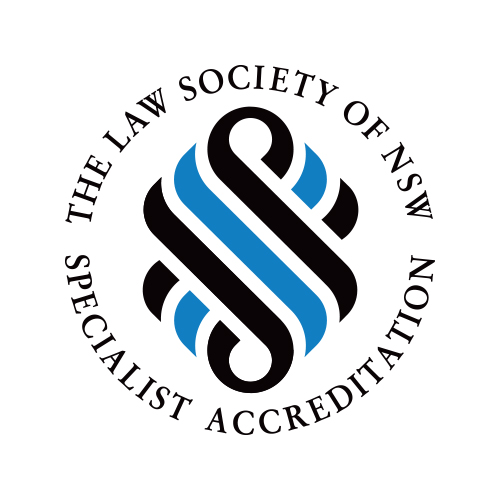
How do I obtain an Airport Watchlist order?
The Australian Federal Police (AFP) maintain a Family Law Watchlist, previously known as the Airport Watchlist. This register allows the AFP to be alerted if a child is being unlawfully removed from Australia. This watchlist is in effect at any point of exit or entry to Australia – at airports and also sea ports.
It is generally an offence under the Family Law Act 1975 (Cth) (see sections 65YA and 65Z) to remove a child from Australia where there are unresolved parenting proceedings on foot, or if there is an order that prevents that travel. Such offences carry a potential three (3) year term of imprisonment. It is important to note that there is an exception to the general prohibition on travel while proceedings are on foot, namely travel to escape family violence.
The Family Law/Airport Watchlist is designed to prevent children being removed from Australia by a parent or another person. The Federal Circuit and Family Court of Australia (FCFCOA) has the power to make orders restraining travel and can request that children be added to (or removed from) the Watchlist.
If you are concerned about child abduction, or your child/children being taken overseas without consent or contrary to a Court Order please contact us. You should not delay in seeking legal advice and taking steps to prevent the removal of children to overseas.
Call us on 1300 148 110 to set up an initial, free consultation to discuss your family law matter.
How to get children on the Family Law Watchlist?
There are a number of Court documents that will need to be prepared and filed so that a child may be placed on the Watchlist. What documents are required will depend upon whether you already have a matter in the FCFCOA, or if this is a fresh application.
If this is a fresh application, we can assist you in preparing an Initiating Application with supporting documents, to be filed in the FCFCOA. This application will also ordinarily seek additional parenting Orders, including about where a child lives and with whom they spend time. The urgency of your matter will determine how we approach the case, and what documents we will need to file.
Compliance with pre-action procedures is ordinarily required, which would usually entail attending Family Dispute Resolution and obtaining a Section 60I certificate. We can assist you to apply for an exemption from this requirement, if the circumstances warrant this.
If there is an imminent risk of harm to a child, or that a child may be abducted (“kidnapped”) and taken overseas by another person, we can provide you advice and take steps to request that the Court deal with your application on an urgent basis. We can seek additional Orders so that the Court considers dealing with the matter in an urgent listing, or even on an ex parte basis – which means without the other party present or having been served with the application.
We are also required to prepare a Genuine Steps certification, a Notice of Child Abuse, Family Violence or Risk, a Parenting Questionnaire and an Affidavit. Your Affidavit is the evidence that will go before the Court in support of the Orders you seek, and will need to thoroughly detail the risk of abduction/removal, the links to another country and how such a removal might occur (for instance, what Passports does or could a child hold?).
As with any exercise of its discretion with respect to a parenting matter, the Court will consider what is in the best interests of the child or children, when making a determining what Orders to make.
If you already have a matter in the FCFCOA we can assist you to prepare an Application in a Proceeding, and supporting Affidavit.
We will need to provide these completed documents to the AFP, and complete their Family Law Watchlist Request form. The same documents also need to be served on the other party.


Australian Federal Police requirements for the Airport Watchlist
In summary, the AFP will require the following, to place a child on the Family Law/Airport Watchlist:
• A completed AFP Family Law Watchlist Request form; and
• An Order that limits or prevents the child’s overseas travel, and which requests they be placed on the Family Law Watchlist; or;
• An application before the Court seeking an order to limit or prevent travel, with a request that they be placed on the Watchlist; or
• A current appeal against an order relating to the child that limits or prevents the child’s overseas travel that had requested the AFP to place the child on the Family Law Watchlist.
A Family Law/Airport Watchlist Order can be made as either an absolute prohibition, or a conditional prohibition on travel. The former will operate until a further Order is made by the Court (or when a child turns 18). The latter is framed as an order that permits travel with the consent of both parties. This consent is provided in writing, by way of a statutory declaration.
Orders are often made for a specified period of time, perhaps 2 – 3 years, rather than indefinitely.
The AFP have their preferred form of order, which we can utilise to help make the process more streamlined.
We can assist you to serve the relevant documents on the AFP and other parties. Once an application is on foot, it will be an offence to travel and the child/children will remain on the Watchlist until the Court either makes an Order to specifically permit travel, or the proceedings resolve.
Once the Court makes the Orders sought, the Court will typically provide a copy of that Order to the AFP directly.
If there are circumstances of significant urgency, we can assist in ensuring that the AFP are furnished with all the information they need to act.
Once a child/ren are on the Watchlist, you should be aware to:
• Confirm that they are on the Watchlist, by submitting an enquiry with the AFP;
• Ensure that the AFP is kept appraised of your contact information, passport details and personal circumstances, and any changes to that information;
• Ensure that they are provided with any new Orders; and
• Ensure that sufficient notice is given for any permitted travel (at least 10 days).
If you are concerned that your children may be removed from Australia, you should not delay in seeking legal advice.





